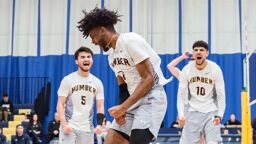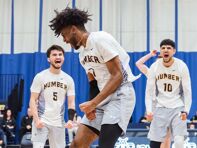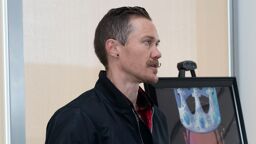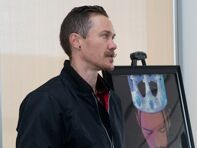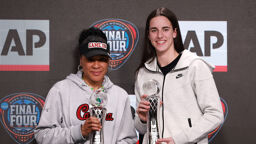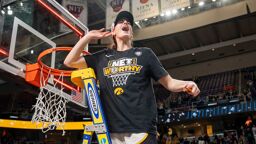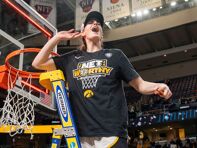Editor’s note: Common Ground is an initiative to build bridges through conversation between the LGBTQ community and people of faith in college athletics. It is spearheaded by the NCAA and various advocates and administrators across sports. Common Ground 4 is taking place this week at Brigham Young Univ. You can find more information at NCAA.org.
This is part of a series from Common Ground participants.
In January of 2014 I attended a session at the NCAA Convention in San Diego entitled “LGBTQ & Religion: Finding Common Ground.” The relatively large room in which we met was packed – standing room only. The panelists were thought-provoking and the table discussions were engaging.
At that presentation, I heard about a national think tank on this topic that was to be held in November at NCAA headquarters in Indianapolis. I left the session trying to figure out how to get invited to that think tank.
Fast forward to November and the introvert in me was second guessing my desire to be invited to this event. I was sitting in a room in Indianapolis with about 30 other people, most of whom I didn’t know and most of whom hold significantly different views on this matter than I do — or at least I thought they do.
Emotionally finding common ground
The day-and-a-half program was intense and emotionally draining to say the least. In hindsight I’d classify it as extremely valuable, but as I left I honestly wasn’t sure what was next. I was still seeing this as a one-time experience. “Next” turned out to be an invitation for me and two of my Christian colleagues to join the leadership team in preparing for Common Ground 2, which would take place in November of 2016.
As we’ve moved through the years, what I thought was going to be a one-time event has turned into Common Ground 2, 3 and, even as you’re reading this, 4.
Life is often messy, nuanced and complex, impacting real people in deep, powerful ways.
We’ve done many professional development sessions at conventions, inclusion forums and conferences. I’ve lost count of how many planning meetings we’ve had – a few in person – but mostly on regular conference calls. A group of strangers has become a group of close friends who recognize each other’s voices over the phone without introduction. Our hour-long calls get more and more squeezed as we spend time catching up with each other’s lives.
Learning respect through diversity
At a recent in-person meeting one of our team member friends said, “I belong to a lot of diverse groups, but I can honestly say that this leadership team is the most diverse of them all.” I think he’s right. Our leadership team is very diverse. We represent huge universities and small colleges. We come from public, private secular and faith-based institutions. We live in urban, suburban and rural areas. We have people from all three NCAA divisions. We represent different races. We are gay, straight, lesbian, bisexual and queer. We are transgender and cisgender. We have atheists and people of deep faith. I could go on.
The differences are many, but so are the similarities. We all have people in our lives about whom we care deeply. We are spouses. We are sons and daughters, brothers and sisters, moms and dads, grandparents, aunts and uncles, and friends.
We all feel passionately about serving student-athletes and want to make a difference in their lives. We all want to make our world a better place. We all love athletics and have focused our search for common ground in that arena, although we hope some of the things we are learning have broader applications for our world.
As I look back on where we’ve come from as a team, and forward to where we still hope to go with this important work, my biggest blessing to date has been the life-long friends I’ve made on this leadership team. Who would have thought that in spite of very significant differences that have polarized many in our society, a group like this could build the kind of deep, caring friendships we have.
As a career athletics administrator who has spent the last 30-plus years serving at a small Christian college, the core of what I believe on this topic has not changed. But I have been reminded that life is often messy, nuanced and complex, impacting real people in deep, powerful ways.
Affirming Christian identity
My identity as a Christian is foundational to who I am as a person, and my work with this group has reinforced and affirmed that.
At the same time, I have been reminded that those core beliefs call me to love God with all that I am and to love my neighbor as myself. I believe that “neighbor” includes those who are like me and those who are very different from me. (Lk. 10:25-37)
I don’t know what the future holds relative to this work, but I do know that the friendships I’ve made through it will last long beyond its conclusion, which I hope won’t be anytime soon. I’ve learned much from these dear friends. I’ve learned what it means to be committed to an on-going conversation about hard topics.
I’ve learned to stay at the table even when it might be easier to walk away. I’ve been reminded that strong relationships can survive passionate disagreement. I’ve learned to listen better.
I’ve learned to see the person behind the issue. I’ve learned to be more teachable.
I’ve learned to see the person behind the issue. I’ve learned to be more teachable. I’ve learned about the power of dialogue, collaboration and building relationships.
I’ve learned that it’s possible to find common ground where no one’s core values are compromised, if you are willing to work hard enough and long enough.
Thank you, dear friends, for enriching my life.
H. “Skip” Lord is National Director of Athletics Engagement at Houghton College, a small liberal arts college in Western New York. You can find him on Instagram @coachlord44, and on Twitter @SkipLord.







